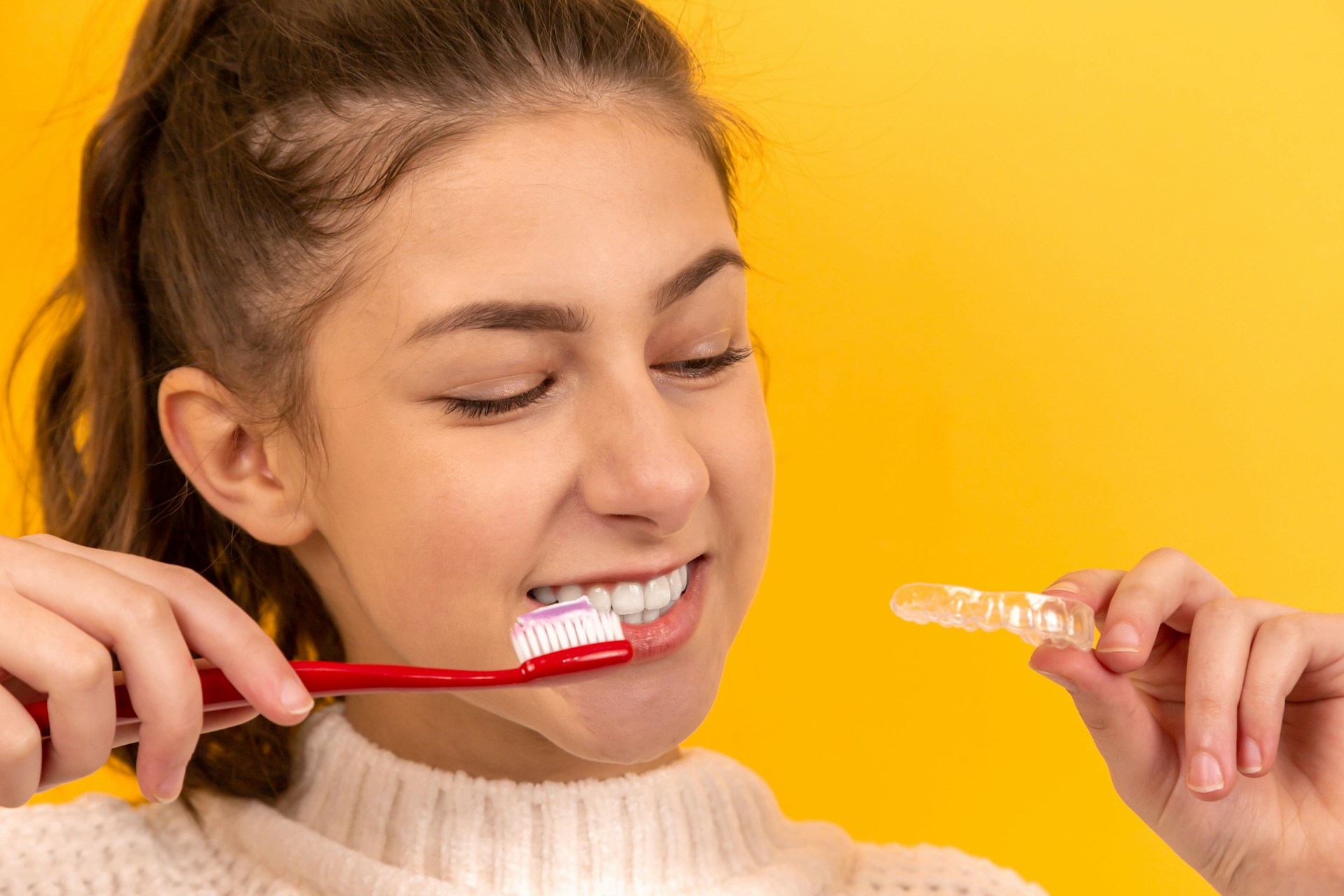
When we think about maintaining oral health, the first things that come to mind are brushing, flossing, and regular dental check-ups. While these habits are essential, many people overlook one of the most crucial factors in protecting their teeth and gums: nutrition. What we eat and drink has a direct impact on the health of our teeth, gums, and mouth. A balanced diet not only provides the nutrients needed to keep the mouth healthy but also plays a significant role in preventing common dental issues like cavities, gum disease, and tooth decay.
In this article, we’ll explore the connection between nutrition and oral health, highlighting which foods support a healthy mouth and which ones can harm it. Whether you’re aiming to prevent future dental problems or seeking to maintain treatments like veneers London, a diet rich in essential nutrients is a key component of oral care.
Table of Contents
Specialist Insight: The Role of Nutrition in Oral Health
“Diet plays a huge role in maintaining strong, healthy teeth and gums,” says Dr. Sahil Patel of Marylebone Smile Clinic. “Patients often focus on brushing and flossing, but they don’t always realise that what they eat can either strengthen or weaken their teeth. By incorporating foods rich in calcium, phosphorus, and vitamins like C and D, you can help protect your teeth from decay and support overall oral health.”
Dr. Patel also notes the importance of hydration: “Water is one of the best things you can drink for your teeth. It helps cleanse the mouth, stimulate saliva production, and prevent dry mouth, which can lead to cavities and gum disease.”
How Nutrition Affects Oral Health
Your mouth, teeth, and gums rely on a variety of nutrients to stay strong and healthy. Just as poor nutrition can lead to general health problems like heart disease and obesity, a diet lacking in essential vitamins and minerals can increase the risk of oral health issues. Here are some of the ways nutrition impacts your oral health:
Strengthening Tooth Enamel: The outer layer of your teeth, known as enamel, is made up of minerals like calcium and phosphate. These minerals provide a protective barrier that helps shield teeth from bacteria, acids, and damage. A diet rich in calcium and phosphate helps strengthen enamel, making teeth more resistant to decay.
Supporting Gum Health: Healthy gums are the foundation of a healthy smile. Vitamin C, in particular, is essential for gum health, as it helps build and repair connective tissue, preventing inflammation and gum disease.
Saliva Production: Saliva plays a vital role in keeping your mouth clean and protecting teeth from decay. Certain foods stimulate saliva production, which helps wash away food particles, neutralise acids, and protect teeth from bacteria.
Preventing Tooth Decay: Sugary and acidic foods can contribute to tooth decay by feeding harmful bacteria in the mouth. A balanced diet that limits these foods helps prevent cavities and decay.
Nutrients Essential for Oral Health
A balanced, nutrient-rich diet is the foundation for maintaining strong teeth and gums. Let’s take a look at the key nutrients that contribute to good oral health and the foods that provide them.
Calcium
Calcium is one of the most important minerals for oral health. It helps form and maintain strong bones and teeth by supporting the structure of enamel and the underlying bone in the jaw. Without enough calcium, teeth can become more prone to decay, and the jawbone can weaken, leading to tooth loss.
Sources of Calcium: Dairy items including cheese, yoghurt, and milk are great sources of calcium. Almonds, leafy greens (like broccoli and kale), and fortified plant-based milks (like soy, almond, or oat milk) are suitable substitutes for people on a lactose-free or vegan diet.
Phosphorus
Phosphorus works hand in hand with calcium to strengthen teeth and bones. This mineral is essential for the remineralisation of enamel, the process by which minerals are redeposited into tooth enamel after being lost to acidic foods or bacteria.
Sources of Phosphorus: Foods high in phosphorus include fish (such as salmon, tuna, and mackerel), eggs, dairy products, lean meats, nuts, and whole grains.
Vitamin D
Vitamin D is crucial for helping the body absorb calcium, making it an essential part of maintaining strong teeth and healthy bones. A deficiency in vitamin D can lead to weakened enamel and increase the risk of cavities and gum disease.
Sources of Vitamin D: Sunlight is one of the best sources of vitamin D, as the body produces it naturally when exposed to sunlight. Dietary sources of vitamin D include fatty fish (such as salmon and tuna), fortified milk, and egg yolks. Vitamin D supplements may also be necessary for individuals with limited sun exposure.
Vitamin C
Vitamin C is vital for maintaining healthy gums and soft tissues in the mouth. It helps the body produce collagen, a protein that is essential for repairing gum tissue and preventing inflammation. A deficiency in vitamin C can lead to bleeding gums and an increased risk of gum disease.
Sources of Vitamin C: Citrus fruits like oranges, lemons, and grapefruits are well-known sources of vitamin C, but other fruits and vegetables like strawberries, bell peppers, broccoli, and kale also provide ample amounts.
Fluoride
Fluoride is a mineral that helps strengthen tooth enamel and prevent decay. It works by remineralising areas of weakened enamel and making teeth more resistant to acid attacks from bacteria and sugar. Fluoride can be found in many water supplies and is also present in fluoride toothpaste.
Sources of Fluoride: Fluoridated water, fluoride toothpaste, and mouthwashes containing fluoride are the primary sources. Some foods, such as tea and certain types of seafood, also contain small amounts of fluoride.
Vitamin A
Vitamin A is important for maintaining the health of the mucous membranes in the mouth and for producing saliva, which helps prevent dry mouth and protect teeth from decay.
Sources of Vitamin A: Foods rich in vitamin A include sweet potatoes, carrots, leafy greens, eggs, and liver.
Foods to Avoid for Better Oral Health
While many foods support oral health, there are also certain foods and beverages that can have negative effects on your teeth and gums. Limiting the consumption of these foods can help prevent tooth decay, enamel erosion, and gum disease.
Sugary Foods and Drinks
When it comes to dental decay, sugar is among the main offenders. Cavities are caused by oral bacteria that break down tooth enamel by producing acids in response to sweets. In moderation, you should consume candies, cakes, cookies, and sugary drinks like fruit juices and sodas to keep your teeth healthy.
If you do consume sugary foods or drinks, it’s important to rinse your mouth with water afterward and wait at least 30 minutes before brushing to allow your enamel to recover from the acid exposure.
Acidic Foods and Beverages
Over time, acidic foods and beverages including wine, soda, vinegar-based sauces, and citrus fruits can erode dental enamel. The teeth become weaker and more vulnerable to decay as a result of this erosion. Even though citrus fruits provide important nutrients like vitamin C, it’s advisable to eat them in moderation and then rinse your mouth with water.
Sticky and Starchy Foods
Sticky foods, such as dried fruit or caramel, and starchy foods, like potato chips and bread, can easily get stuck between the teeth, providing a food source for bacteria. These foods can be difficult to clean off the teeth, leading to an increased risk of cavities if proper oral hygiene isn’t followed.
How Your Diet Affects Your Gums
Gum health is just as important as the health of your teeth, and your diet plays a major role in preventing gum disease. A balanced diet rich in vitamins and minerals helps keep the tissues in your mouth strong and healthy. In particular, vitaminsC and A are essential for maintaining the structure of gum tissue and promoting healing.
A diet high in refined sugars and processed foods, on the other hand, can contribute to inflammation and the development of gum disease. The bacteria that cause gum disease feed on sugars, producing acids that irritate the gums and lead to infection.
Hydration and Its Impact on Oral Health
Water is one of the most important components of a healthy diet for oral health. Staying hydrated helps ensure that your mouth produces enough saliva, which is essential for washing away food particles, neutralising acids, and protecting teeth from decay.
Drinking water throughout the day helps prevent dry mouth, a condition in which there isn’t enough saliva to keep the mouth moist and clean. Dry mouth can increase the risk of cavities, gum disease, and bad breath.
For those who drink sugary or acidic beverages, switching to water can make a significant difference in protecting enamel and reducing the risk of tooth decay. Fluoridated water, in particular, provides additional protection against cavities by helping to strengthen tooth enamel.
A Balanced Diet for a Healthy Smile
Maintaining good oral health isn’t just about brushing and flossing—it’s also about nourishing your body with the right foods. A diet rich in essential nutrients like calcium, phosphorus, and vitamins C and D supports strong teeth and gums, while limiting sugary and acidic foods can help prevent tooth decay and gum disease.
Prioritising your nutrition is a critical part of maintaining your smile whether you’re focused on preventing future dental problems or preserving dental treatments like veneers London. By making informed dietary choices and staying hydrated, you can ensure that your teeth and gums remain healthy for years to come.

